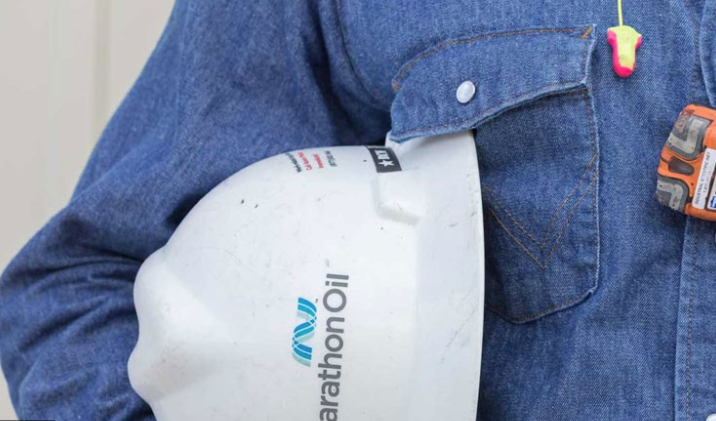Marathon Oil (MRO) missed views and laid off 16% of its workforce, while halting dividend payments and buybacks. It also cut its 2020 capital spending budget to $1.3 billion or less, now putting it at least $1.1 billion below earlier guidance and 50% below last year’s outlays.
Lee Tillman — Chairman, President, and Chief Executive Officer
Our industry has been a powerful engine of U.S. economic growth for the last decade, and the clean affordable energy we provide will unquestionably be critical in powering our nation’s eventual economic recovery. I want to pause and extend my thanks to Mitch Little for his three decades of service and leadership at our company. Mitch has been an integral part of our transformation to a leading independent E&P and has set the tone for the execution excellence that we consistently deliver in our operations.
While market forces are currently at work and global oil supply is headed in the right direction, the only real answer to the current commodity crisis is for the world to get healthy and back to work again. Demand for our product will recover, although the timing and shape of this recovery remain unknown. And once demand does recover, capital discipline, especially from the U.S. will be necessary for any sustained price improvement.
Rest assured, Marathon will play its part when it comes to exercising this discipline.
With our revised budget, we are exercising discipline, protecting our returns and preserving value through the cycle. And importantly, we are delivering an enterprise breakeven WTI oil price in the low 30s for the second half of 2020.
Our objective is to further enhance our competitiveness, reduce our cash flow breakevens and position our company for success in a lower, more volatile commodity price environment.
We are advantaged by our size, our contracting strategy as well as our exposure to multiple basins and different end markets.
Highlights
- Executing revised 2020 total capital expenditure budget of $1.3 billion or less, a reduction of at least $1.1 billion in comparison to initial 2020 guidance and a 50% reduction in comparison to actual 2019 capital spending
- Expect to capture annualized cash cost reductions of $350 million, or 20%, relative to initial 2020 budget
- Implementing broad-based cost saving measures, including base salary reductions for CEO and other corporate officers, reduction of Board of Director compensation, and U.S. employee and contractor workforce reductions
- Temporarily suspending quarterly dividend and share repurchase program
- Ended first quarter with $3.8 billion of liquidity, including $817 million of cash and cash equivalents and an undrawn revolving credit facility of $3.0 billion
- Investment grade credit rating at all three primary rating agencies, with recently completed reviews from Fitch and S&P
- Protected second quarter cash flow through 117,000 bopd of fixed price swaps and two-way collars at a weighted average floor price of $30.33/bbl
United States (U.S.)
U.S. production averaged 340,000 net barrels of oil equivalent per day (boed) for first quarter 2020. Oil production averaged 207,000 net barrels of oil per day (bopd), in comparison to first quarter production guidance of 192,000 to 202,000 net bopd. U.S. unit production costs were $4.63 per boe, the lowest quarterly average since Marathon Oil became an independent exploration and production company. First quarter average completed well cost per lateral foot was down approximately 10% in comparison to the prior year average.
EAGLE FORD: Marathon Oil’s Eagle Ford production averaged 114,000 net boed for first quarter 2020. Oil production averaged 72,000 net bopd. Marathon Oil operated four rigs and two frac crews on average during first quarter and brought 38 gross Company-operated wells to sales. The Company has suspended second quarter completion activity and plans to transition to a lower and more stable level of drilling and completion activity over the second half of the year.
BAKKEN: Marathon Oil’s Bakken production averaged 110,000 net boed in the first quarter 2020. Oil production averaged 88,000 net bopd. Marathon Oil operated four rigs and 1 frac crew on average during first quarter and brought 25 gross Company-operated wells to sales. As in the Eagle Ford, the Company has suspended second quarter completion activity and plans to transition to a lower and more stable level of drilling and completion activity over the second half of the year.
OKLAHOMA: Marathon Oil’s Oklahoma production averaged 74,000 net boed in the first quarter 2020. Oil production averaged 21,000 net bopd. The Company brought 13 gross Company-operated wells to sales during first quarter. Marathon Oil began the year operating three rigs and one frac crew in Oklahoma but suspended all drilling and completion operations before the end of first quarter. The Company currently does not expect to bring any additional wells to sales in Oklahoma this year.
NORTHERN DELAWARE: Marathon Oil’s Northern Delaware production averaged 30,000 net boed in the first quarter 2020. Oil production averaged 17,000 net bopd. The Company brought 6 gross Company-operated wells to sales. Marathon Oil has suspended further drilling activity in the Northern Delaware, with only a limited number of wells to sales expected through the balance of the year.
RESOURCE PLAY EXPLORATION: In response to the dramatic fall in commodity prices, the Company has exercised the flexibility inherent in this program and has suspended further activity, beyond wells already in progress in the Texas Delaware oil play. The Company therefore expects to drive an approximate $100 million reduction to REx capital expenditures this year in comparison to initial guidance of $200 million. REx spending is fully contemplated within the Company’s total capital spending budget of $1.3 billion or less.
International
Equatorial Guinea production averaged 82,000 net boed for first quarter 2020, including 14,000 net bopd of oil. Unit production costs averaged $2.35 per boe. The previously disclosed major turnaround at the AMPCO methanol facility was completed during first quarter.

